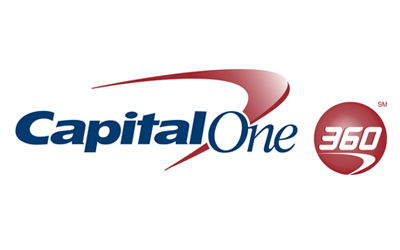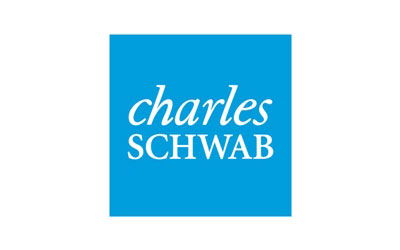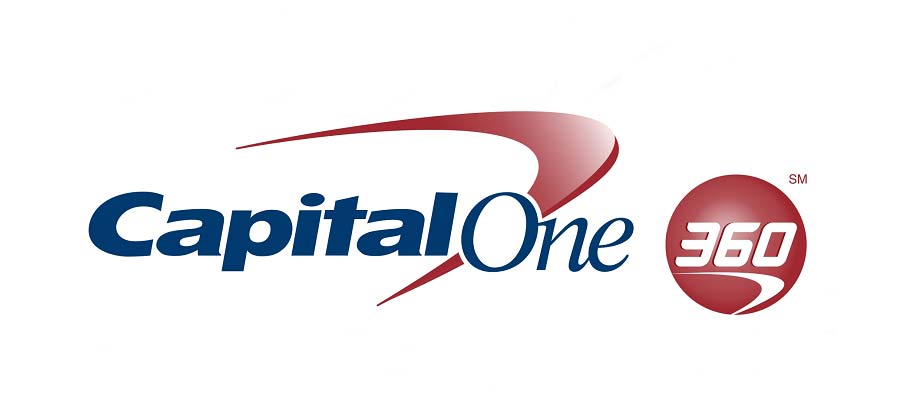Having the right checking account comes with several benefits and conveniences, from free ATMs to automatic bill pay. Your checking account can also end up costing you money in the form of monthly maintenance fees and overdraft charges.
Finding the best fit depends on various factors, including how you make deposits, what type of balance you carry, and how you spend.
To help narrow down your choices, we’ve compiled a list of the year’s best checking accounts in different categories. Even if you already have a checking account, it’s smart to review your options to make sure your bank or credit union is working for you.
Best Checking Accounts with Sign-Up Bonuses
A little free cash never hurt anyone, and two banks are currently offering some attractive sign-up bonuses. So, if you follow a few guidelines upon signing up, you’ll get a pre-determined deposit of cash right into your new checking account. Here are today’s best deals for checking accounts with sign-up bonuses.
SoFi
SoFi is offering a cash bonus of up to $300 for new or existing customers who open a new SoFi Checking and Savings account.
Chase
Chase currently offers a similar promotion for new customers. You can receive a $300 bonus by setting up a direct deposit into your Chase Total Checking account.
U.S. Bank
Earn up to $400 when you open a new U.S. Bank Smartly® Checking account and complete qualifying activities. Subject to certain terms and limitations. Offer valid through July 31, 2025. Member FDIC.
TD Bank
TD Bank is currently offering two sign-up bonuses for new customers opening up a checking account. The first is for a $200 bonus when you sign up for the TD Convenience Checking account.
Best Online Checking Accounts
Many people prefer the convenience of a strong online presence with great customer service over going to a bank’s physical location. Luckily, there are plenty of heavy-hitters with online checking options for anyone who’s constantly on the go.
Check out our best checking accounts that allow you to handle all your banking needs online.
Current
Current is a mobile banking app built for people who want fast access to their money and a smarter way to manage it.
Chime
Chime® is the best checking account for those seeking a low-cost digital banking option, with no monthly fees, hidden charges, or account balance minimums to worry about.
Upgrade
The Upgrade Rewards Checking Plus account offers numerous benefits, including no monthly or overdraft fees. Customers who establish monthly direct deposits of $1,000 or more can earn up to 2% cash back on everyday debit card purchases.
Capital One 360
Capital One 360 offers big bank perks with online convenience.
This free online checking account doesn’t have any minimum balance requirement. It also allows you to earn a small amount of interest regardless of your deposit size.
Charles Schwab
Schwab Bank’s Investor Checking is a fully online checking account. It has no monthly fees, no balance requirements, and no debit card spending requirements.
Best High Interest Rate Checking Accounts
Interest rates on any type of bank account aren’t very high today, but that doesn’t mean they’re unheard of. You usually have to open a savings account to receive any type of yield on your balance. However, there are some high-yield checking accounts that offer interest on your deposits. Here are our top picks.
Fitness Bank
Fitness Bank offers a checking account that rewards physical activity with higher interest rates. Instead of a fixed APY, the interest rate scales based on your average daily step count.
NBKC Bank
NBKC provides online checking accounts with competitive interest rates. They have four local branches in Kansas City, and access to about 37,000 ATMs nationwide via MoneyPass.
Bank5 Connect
Our final pick for the best high-interest checking accounts is Bank5 Connect. This is a great choice because you only need a minimum deposit of $100 to start earning interest.
Best Credit Union Checking Accounts
Credit unions typically have certain requirements to qualify for membership, like working in a particular industry or living in a specific community. However, many national credit unions have wide membership requirements, but they offer some great financial products once you’re in.
Establishing a strong relationship with a credit union can set the stage to get approved for future financial needs, including personal loans or car loans.
Consumers Credit Union
Based in Michigan, Consumers Credit Union offers one of the highest-yielding checking accounts nationwide.
Alliant Credit Union
Alliant offers an easy, free checking account that boasts no monthly service fees and no account minimums.
There are over 80,000 ATMs you can use for free, and Alliant will give you up to $20 a month in reimbursements for any ATM fees you accumulate.
Connexus
Connexus offers checking account members various free services, including free online and mobile banking, bill pay, and eStatements.
Types of Checking Accounts
Checking accounts aren’t one-size-fits-all. Banks and credit unions offer several options, each designed for different financial needs. Here’s a look at the main types and how they work.
Traditional Checking Accounts
These are standard accounts offered by most banks and credit unions. They usually have low minimum balance requirements, allow unlimited transactions, and include online and mobile banking.
Interest-Bearing Checking Accounts
Interest-bearing checking accounts pay interest on your balance, but you may need to maintain a higher minimum or pay monthly fees to earn it.
Premium Checking Accounts
Premium checking accounts come with extra perks like higher interest, waived fees on other products, or dedicated customer service. They typically require a large balance to avoid monthly charges.
Rewards Checking Accounts
Rewards checking accounts offer rewards such as cash back or bonus interest when you meet specific conditions, like setting up direct deposit or using your debit card regularly.
Second Chance Checking Accounts
Designed for people with a history of account issues, second chance checking accounts have more restrictions and fees but offer a way to reestablish good banking habits.
Student Checking Accounts
Student checking accounts usually have lower fees and balance requirements. Some also include student-friendly perks like discounts or free financial tools.
Senior Checking Accounts
Senior checking accounts are tailored for older adults and often include waived fees, higher interest, or additional support services.
Business Checking Accounts
Business checking accounts support commercial transactions and may include features like employee debit cards, invoicing tools, and integration with accounting software.

Pros and Cons of Checking Accounts
Checking accounts offer several benefits, including easy access to cash and the option for direct deposit of paychecks. Here are some pros and cons of checking accounts:
Pros
- Convenient: A checking account allows you to easily access your money through various methods such as debit cards, checks, and online banking.
- Versatile: Checking accounts can be used for a wide range of transactions, such as paying bills, making purchases, and withdrawing cash.
- Safe: Checking accounts are typically insured by the Federal Deposit Insurance Corporation (FDIC) at a bank or the National Credit Union Administration (NCUA) at credit unions. This ensures that you are protected in the event of a bank failure, with up to $250,000 in insurance per depositor, per bank or credit union.
Cons
- Fees: Some checking accounts may charge fees for maintenance, overdrafts, or using certain services or ATMs.
- Limited interest: Checking accounts generally offer lower interest rates than other types of accounts, such as savings accounts or money market accounts.
- Minimum balance requirements: A minimum balance may be required to waive fees or earn interest on certain checking accounts. If you are unable to maintain the minimum balance, you may be charged a fee.
Key Factors to Consider when Choosing a Checking Account
To find the best fit for your financial needs, there are several key factors to consider when choosing a checking account. These include:
- Fees: Look for a checking account with low or no monthly maintenance fees and minimal fees for using ATMs.
- Annual percentage yield (APY): If you intend to keep a large balance in your checking account, consider an account that offers a competitive annual percentage yield.
- Minimum balance requirements: Some checking accounts may have a minimum balance requirement to waive fees or earn interest. Make sure you are comfortable with any requirements before opening an account.
- Access to branches and ATMs: If you prefer to do your banking in person or need access to a large network of ATMs, make sure the checking account you choose has convenient branch locations and ATMs.
- Online and mobile banking features: Consider the digital banking options offered by the checking account, such as mobile check deposit and online bill pay.
- Customer service: It’s important to choose a checking account with reliable customer service in case you have any questions or issues. Look for accounts with multiple ways to contact customer service, such as by phone, email, or live chat.
How to Open a Checking Account
Here’s a step-by-step guide on how to open a checking account:
- Research different banks and credit unions: Start by comparing the fees, minimum balance requirements, interest rates, and other features of different financial institutions. Consider factors such as the location of branches and ATMs, online and mobile banking options, and customer service.
- Gather the necessary documents: Most financial institutions will require some form of identification, such as a driver’s license or passport, and proof of your current address. You may also need to provide information about your employment and financial history.
- Choose a checking account: Decide on the type of checking account that best fits your needs based on the factors you researched in step one.
- Open the account: Once you’ve chosen a checking account, you can open it either in person at a branch or online. If you open it online, you may need to provide additional documents, such as a voided check or direct deposit form.
- Make a deposit: You will need to make an initial deposit to activate your checking account. This can be done in person at a branch, through an ATM, or online.
- Set up online and mobile banking: Many banks and credit unions offer online and mobile banking options, which can make it easier to manage your account and track your spending.
- Activate any additional features: If your checking account offers features such as a debit card or overdraft protection, be sure to activate them if you intend to use them.
- Review account terms and conditions: Make sure you understand any fees or restrictions associated with your checking account, and consider setting up account alerts to help you manage your balance and avoid overdrafts.
By following these steps and choosing a checking account that meets your needs, you can confidently manage your finances and make the most of your money.
Frequently Asked Questions
What is a checking account?
A checking account is a banking product that offers the ability to deposit and withdraw funds, issue checks, pay bills and perform electronic transactions to manage your daily financial needs.
How do I deposit money into my checking account?
There are several methods for depositing money into a checking account, including visiting a bank branch, using an ATM, or utilizing mobile banking to electronically deposit a check.
Are checking accounts free?
While “free” checking accounts generally don’t have a monthly fee, some banks or credit unions may require a minimum balance or charge fees for specific services, such as using out-of-network ATMs.
Consider your financial habits and review the fees associated with a checking account before opening one. A free account with no fees for out-of-network ATMs may be more suitable if you frequently use such ATMs.
How old do you have to be to open a checking account?
In the US, the minimum age for opening a checking account is 18, though some banks or credit unions may allow younger individuals with the permission of a parent or guardian.
How many checking accounts can I have?
There’s no limit to the number of checking accounts you can hold. Some people opt to open multiple accounts for various purposes, such as personal or business expenses. Others want to take advantage of different fees, interest rates, or account features from multiple financial institutions.
Can you open a checking account online?
Yes, most banks and credit unions offer the option of remotely opening a checking account. The process involves submitting an online application and providing required documentation, after which the bank will review the application. Upon approval, you will receive information on accessing and using your new checking account.
Learn More About Checking Accounts
- Free Online Checking Accounts: No Opening Deposit Required – Get a free online checking account without the need for an initial deposit. Our experts compare the top banks and credit unions to provide you with the best option.
- Checking Accounts for Bad Credit – Find the best checking accounts for bad credit. Our team has compared options from leading banks and credit unions to aid you in repairing your credit.
- Best Checking Accounts With No Overdraft Fees – Tired of high overdraft fees? Discover the best checking accounts with zero overdraft fees and save on unexpected charges.
- Banks That Don’t Use ChexSystems – Identifying banks that don’t utilize ChexSystems can be challenging. Our experts compare the leading options for those with a negative banking history or poor credit.
- Banks That Offer Early Direct Deposit – Get your paycheck early with banks that offer early direct deposit. Our team compares the top options for quick access to your funds.


















